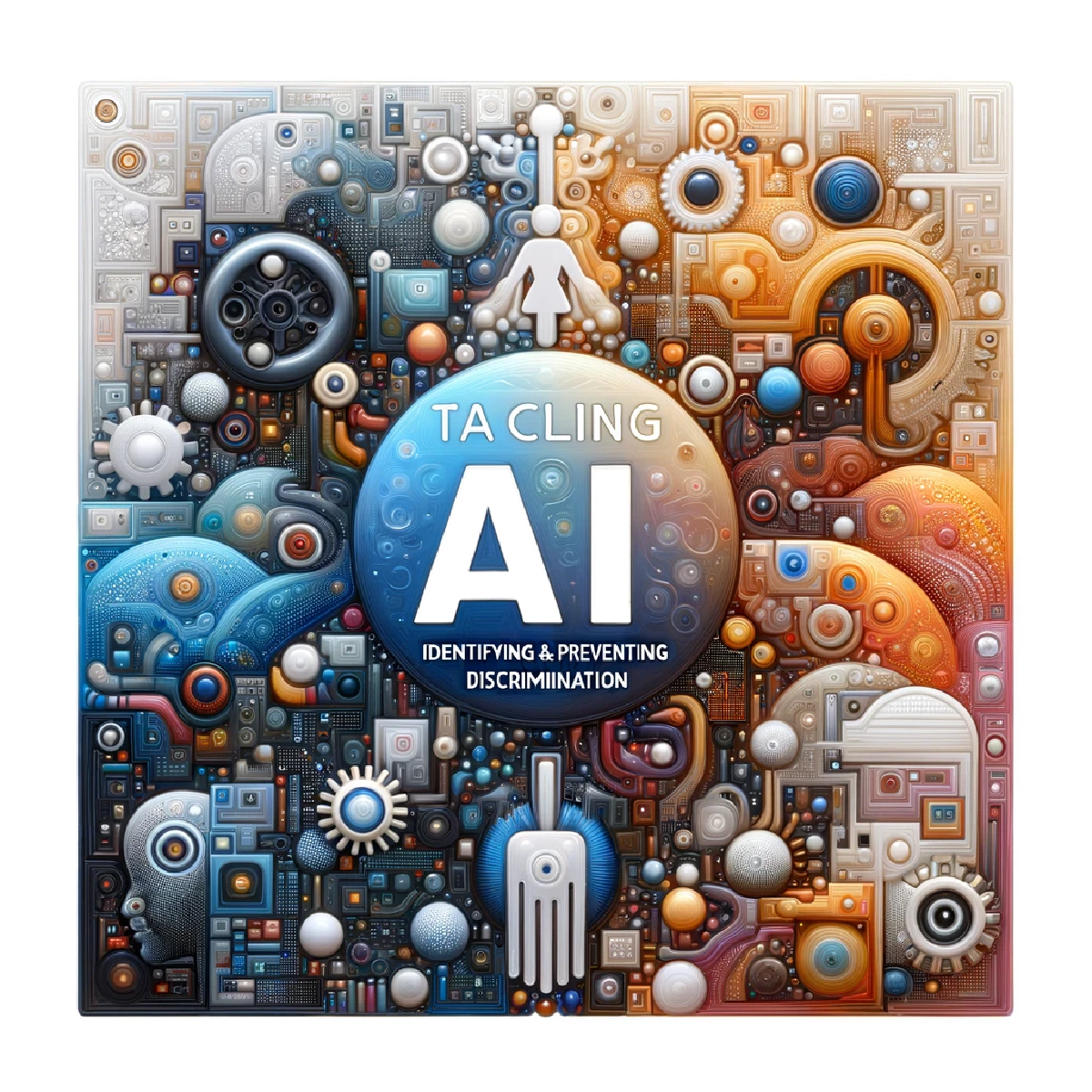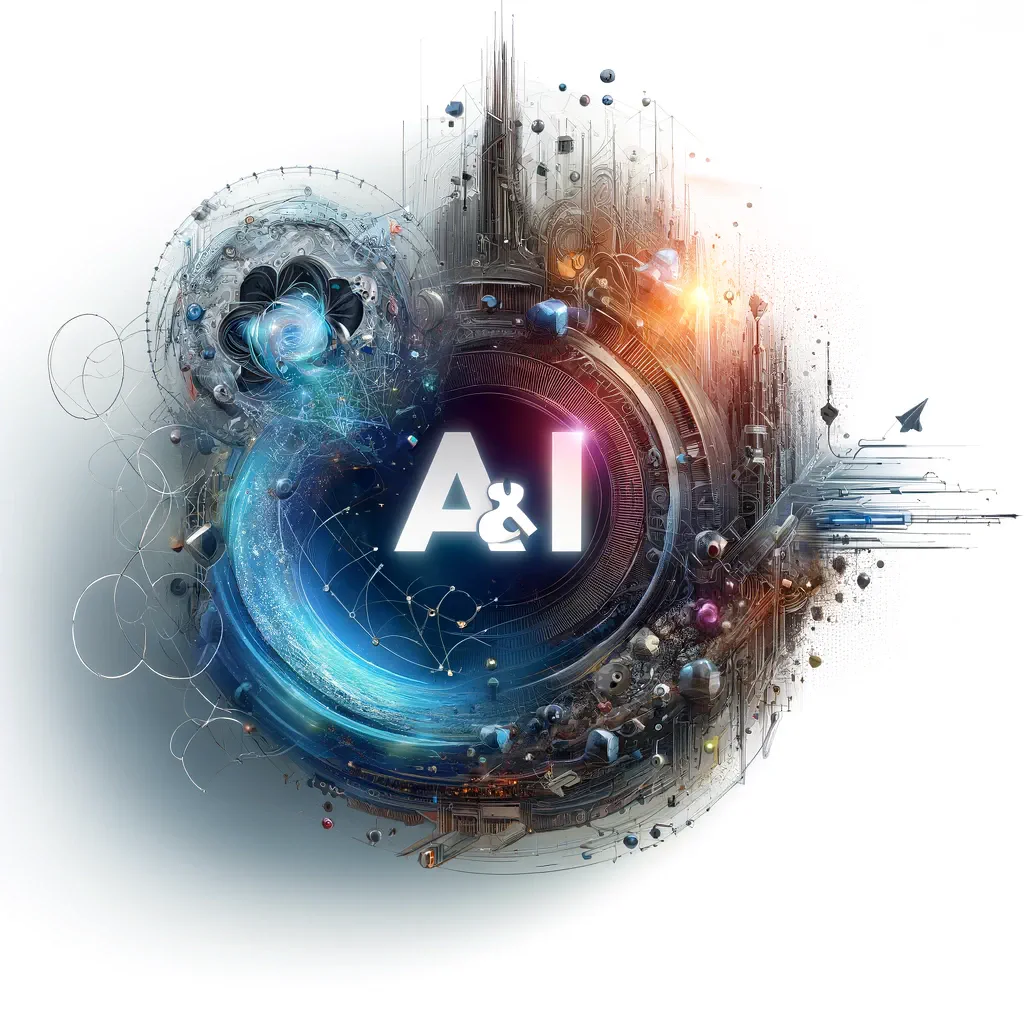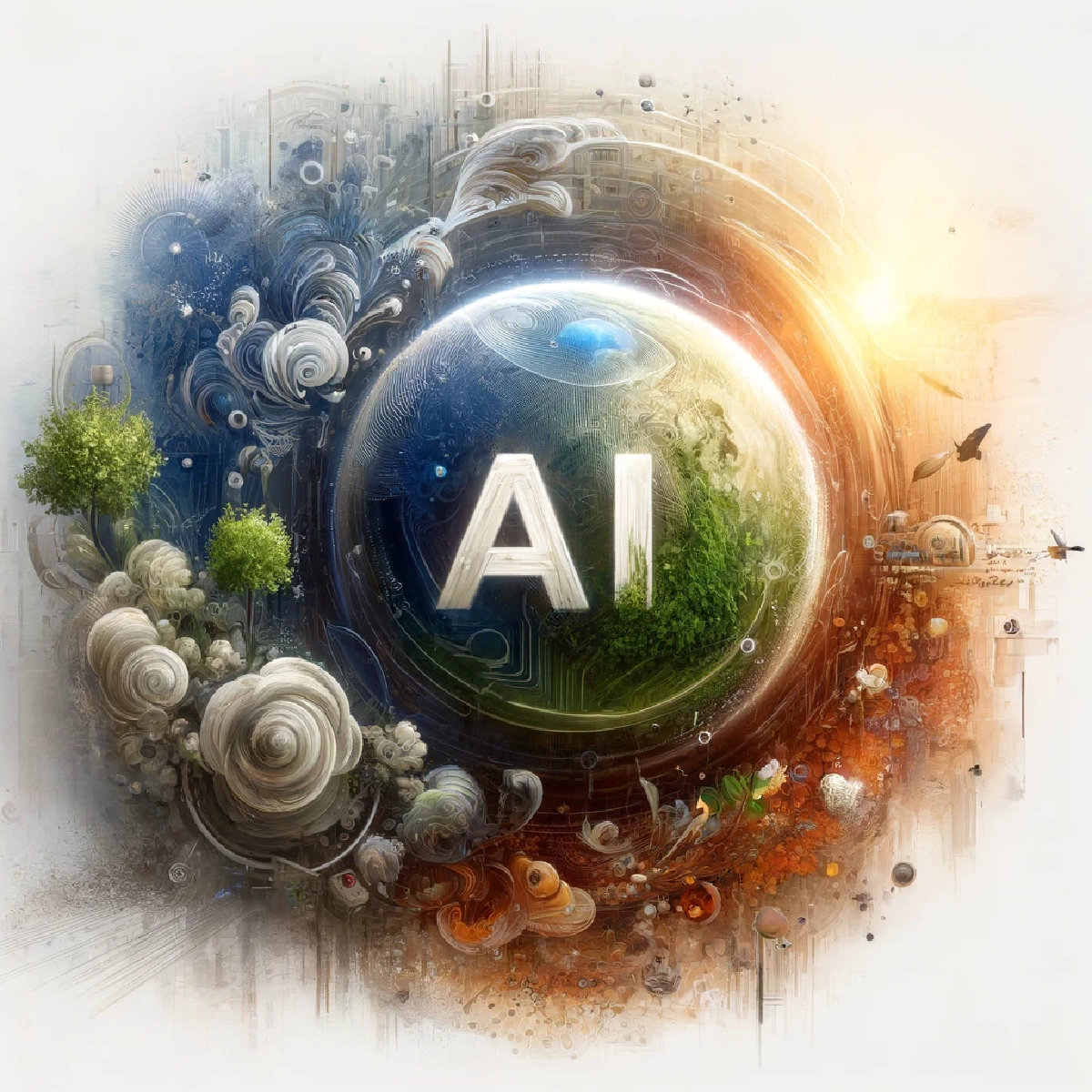
Tackling AI Bias: Identifying & Preventing Discrimination
13 Min read
Artificial intelligence (AI) has the potential to revolutionize numerous industries, but it is not without its pitfalls. …

Quantum computing and artificial intelligence (AI) are two of the most revolutionary technological domains that are poised to redefine the boundaries of computation and intelligent behavior. As quantum technologies enhance computational power exponentially, integrating these capabilities with AI could unlock unprecedented efficiencies and capabilities. This article explores the synergies between quantum computing and AI, delving into their fundamental concepts, intersections, and their transformative implications across various industries
Let’s get started!
To truly appreciate the convergence of Quantum Computing and AI, it’s essential to first understand each technology individually.
Quantum Computing operates on principles of quantum mechanics, such as superposition and entanglement, to perform operations on data at speeds incomparable to traditional computing. This enables it to solve complex mathematical problems much faster than classical computers.
On the other hand, Artificial Intelligence involves creating algorithms and models that allow computers to perform tasks that typically require human intelligence. These tasks include learning from data, recognizing patterns, making decisions, and understanding natural language.
Together, these two technologies leverage their unique strengths, potentially leading to breakthroughs in computational speed and efficiency that could reshape various technologies and industries.
Quantum Computing harnesses the phenomena of quantum mechanics, such as superposition, entanglement, and quantum
interference, to process information. Unlike classical computers, which use bits as the smallest unit of data (each bit being either a 1 or 0), quantum computers use quantum bits, or qubits.
A qubit can represent a 1, a 0, or any quantum superposition of these states, allowing it to perform multiple calculations simultaneously. This capability makes quantum computing exceptionally powerful for certain tasks, such as factoring large numbers, simulating quantum physical processes, optimizing large complex systems, and more.
Its development promises to bring vast improvements in computational speed and efficiency, potentially solving problems that are currently intractable for classical computers.
$$|\psi\rangle = \alpha|0\rangle + \beta|1\rangle, \quad \text{where} \quad |\alpha|^2 + |\beta|^2 = 1$$Here, alpha and beta are complex numbers that describe the probability amplitudes of the qubit being in the [0-1] states, respectively.
This capability of qubits allows them to perform multiple calculations simultaneously, making quantum computing exceptionally powerful for certain tasks such as factoring large numbers, simulating quantum physical processes, optimizing large complex systems, and more.
Artificial Intelligence (AI) operates through a combination of advanced algorithms and computational models that mimic human cognitive functions.
At its core, AI uses machine learning (ML), where systems learn from data, identify patterns, and make decisions with minimal human intervention. Deep learning, a subset of ML, utilizes neural networks with many layers (hence “deep”) to process data in complex ways, enabling capabilities like speech and image recognition. These AI mechanisms are refined through training, where models are fed large volumes of data and iteratively adjusted to improve accuracy.
As AI systems are exposed to more data and experiences, their ability to perform tasks previously requiring human intelligence improves, enhancing their applicability across diverse fields such as healthcare, finance, and autonomous driving.
AI quantum computing reveals exciting synergies that could enhance how we approach complex computational tasks. Quantum computers, with their ability to handle vast datasets through quantum parallelism, provide a powerful platform for running AI algorithms more efficiently.
This is particularly useful in fields like machine learning, where quantum algorithms can potentially reduce the time needed for training models on large datasets. Quantum-enhanced machine learning can improve the precision of AI systems by enabling them to manage and compute information in ways that classical systems cannot match
This can be rephrased as “utilizing the unique capabilities of quantum systems to enhance various aspects of machine learning”. Quantum computer artificial intelligence can potentially revolutionize ML by enabling faster processing of algorithms and handling of complex datasets that classical computers struggle with.
For instance, quantum annealers can solve optimization problems much more efficiently, which is crucial for training deep learning models. Similarly, quantum approaches to linear algebra, which underpin most ML algorithms, can drastically speed up computations like matrix multiplication and eigendecomposition.
These advancements could significantly shorten the time required for model training and inference, thus opening new frontiers in machine learning applications.
Here the focus is on integrating the strengths of quantum mechanics to boost artificial intelligence performance. quantum computing and ai synergy would offer unprecedented opportunities to handle and process complex variables and large-scale optimizations that are beyond the reach of classical systems. For example, quantum algorithms such as the quantum Fourier transform can enhance feature extraction and classification tasks, crucial elements in machine learning pipelines.
With this capability - AI systems can execute tasks that require advanced correlations and feature recognition with greater accuracy and less noise. Synergy not only enhances the efficiency of existing AI processes but also paves the way for developing new, more capable AI-driven technologies.
The Real-world Implications and Applications of ai on quantum computer stretch across various industries, heralding transformative potential. In healthcare, quantum-enhanced AI can revolutionize drug discovery by simulating molecular interactions at an unprecedented scale and speed, potentially reducing the time and cost of bringing new therapies to market. In finance, quantum algorithms improve the accuracy of predictive models used in risk assessment and investment strategies.
Transportation and logistics benefit from optimized routing algorithms, reducing costs and improving service delivery. Worth mentioning - AI-driven cybersecurity, powered by quantum computing, could significantly enhance defenses against sophisticated cyber threats. Each application not only illustrates the practical benefits but also underscores the broad impact of these technologies on everyday life.
The combined power of Quantum Computing and AI is Revolutionizing Data Processing and Analysis, enhancing the speed and efficiency with which big data is managed and interpreted. Quantum computing’s ability to perform parallel computations and handle vast datasets expedites the data processing tasks that are foundational to AI, such as training data models on large-scale data.Real-time data analysis, a critical feature for applications requiring instant computational responses like dynamic pricing, real-time traffic management, and instant fraud detection systems - is now something that’s finally available.
Integration of quantum algorithms within AI frameworks can refine data classification and pattern recognition, making the insights derived from data more accurate and actionable. This revolution in data processing marks a significant leap forward in how industries operationalize data analytics to drive decision-making and innovation.
The integration of Quantum Computing and AI creates tools that can predict molecular interactions with high accuracy and at a fraction of the time required by traditional methods. Quantum computing facilitates the simulation of complex biochemical processes, which are essential for understanding disease mechanisms and the potential effects of drug candidates.
This feature shortens the drug development cycle. As the result - allows quicker responses to global health challenges. AI algorithms, improved by quantum computing’s processing power improve the predictive accuracy of patient diagnostics and personalized treatment plans by analyzing large datasets from medical records and genetic information.
All together - these technologies are not only streamlining the discovery and testing of new pharmaceuticals but also enhancing the customization of healthcare to individual needs, thus improving outcomes and efficiency in the healthcare sector.
The convergence of Quantum Computing and AI is set to Transform Finance and Cryptography by enhancing security measures and optimizing financial decision-making. For the finance sector, quantum-enabled AI can process vast amounts of market data more efficiently than traditional methods, allowing for more accurate predictions and risk analysis. This enhances algorithmic trading by making it faster and more responsive to market changes.
On the cryptography side, quantum computing presents both challenges and solutions; its potential to break certain cryptographic algorithms drives the development of quantum-resistant encryption methods, ensuring data security in a future quantum world. Additionally, quantum cryptography introduces new ways to secure information transfer, such as quantum key distribution, which is proven to be secure against any attack enabled by quantum technology.
This transformation not only fortifies data protection mechanisms but also revolutionizes how secure transactions are conducted, impacting everything from banking to blockchain technologies.
graph LR
QC_AI["Quantum Computing & AI Integration"] --> ImpactAreas["Impact Areas"]
ImpactAreas --> Healthcare
ImpactAreas --> Finance
ImpactAreas --> Transportation
ImpactAreas --> Cybersecurity
ImpactAreas --> DataProcessing
ImpactAreas --> DrugDiscovery
ImpactAreas --> FinanceCryptography
ImpactAreas --> Robotics
Healthcare --> HealthcareDetails["Healthcare Innovations"]
HealthcareDetails --> DrugSim["Revolutionizes drug discovery through molecular simulations"]
HealthcareDetails --> PatientCare["Enhances patient diagnostics and personalized treatment"]
Finance --> FinanceDetails["Finance Improvements"]
FinanceDetails --> MarketModels["Improves predictive models in market analysis"]
FinanceDetails --> RiskAssessment["Enhances risk assessment and investment strategies"]
Transportation --> TransportationLogistics["Transportation & Logistics Optimization"]
TransportationLogistics --> OptimizedRoutes["Enhances routing algorithms"]
TransportationLogistics --> SupplyChain["Optimizes supply chain management"]
Cybersecurity --> CyberSecurityAdvances["Cybersecurity Enhancements"]
CyberSecurityAdvances --> EnhancedDefenses["Boosts defenses against sophisticated cyber threats"]
CyberSecurityAdvances --> QuantumCryptography["Advances in quantum cryptography for secure data transfer"]
DataProcessing --> DataProcessingInnovation["Data Processing & Analysis Revolution"]
DataProcessingInnovation --> BigDataManagement["Enhances management of big data"]
DataProcessingInnovation --> RealTimeAnalysis["Facilitates real-time data analysis"]
DrugDiscovery --> DrugDiscoveryAcceleration["Drug Discovery Acceleration"]
DrugDiscoveryAcceleration --> DrugDevelopment["Accelerates drug development cycles"]
DrugDiscoveryAcceleration --> GlobalHealthResponse["Quick responses to global health challenges"]
FinanceCryptography --> FinanceCryptographyTransformation["Finance & Cryptography Transformation"]
FinanceCryptographyTransformation --> SecureTransactions["Revolutionizes secure transactions"]
FinanceCryptographyTransformation --> EncryptionStandards["Develops quantum-resistant encryption methods"]
Robotics --> RoboticsAutonomy["Robotics & Autonomous System Innovations"]
RoboticsAutonomy --> AutonomousOperations["Improves efficiency and decision-making in autonomous systems"]
RoboticsAutonomy --> EnvironmentAdaptation["Quick adaptation to new environments"]
The synergy of Quantum Computing and AI is particularly transformative in the field of Robotics and Autonomous Systems, where it enables more complex, efficient, and autonomous operations. Quantum computing improves the ability of robots and autonomous systems to process and interpret big amounts of sensory data in real-time.
Quantum-enhanced machine learning algorithms can improve the learning speed and decision-making accuracy of autonomous systems, allowing them to adapt to new environments quickly and effectively. This innovation accelerates the development of more sophisticated and reliable autonomous technologies and also broadens their potential applications across industries such as manufacturing, logistics, and urban planning.
The integration of quantum computing is insane and redefining Transportation and Logistics.
Again, it’s all about speed - quantum computing enables the processing of complex logistics problems at unprecedented speeds, facilitating the optimization of route planning and supply chain management. Quantum-based AI algorithms can predict traffic patterns and vehicle maintenance needs more accurately, leading to more reliable and efficient service delivery.
Capacity of quantum systems to quickly analyze large datasets from various sensors helps autonomous vehicles navigate more safely and efficiently in dynamic environments. This advanced data processing capability allows logistics companies to respond to market changes and shipping demands with greater agility, minimizing delays and reducing operational costs
Technological barriers such as the stability and scalability of quantum devices need to be addressed to realize practical, widespread applications. Quantum computers require extremely low temperatures and are prone to errors due to quantum decoherence and noise, complicating their deployment and reliability + integrating quantum technologies with current AI systems poses substantial software and hardware compatibility challenges. There are also ethical concerns
TL;DR
| Aspect | Scalability and Cost-Efficiency | Ethical and Security Concerns | Regulatory Frameworks and Legal Implications |
|---|---|---|---|
| Main Challenge | Scaling up reliable qubits and managing quantum decoherence | Ensuring security against quantum attacks; ethical concerns | Developing up-to-date regulations for emerging tech |
| Technological Needs | Stable qubit technologies, efficient quantum operations | Quantum-resistant encryption, ethical guidelines | Informed, dynamic legal frameworks |
| Current Focus | Modular architectures, hybrid quantum-classical approaches | Security protocols, public dialogue | Collaboration among experts and regulators |
| Goal | Reduce costs, enhance scalability | Safeguard data, ensure responsible use | Promote innovation while protecting public interests |
This is a crucial step for the future of these converging technologies. One of the major challenges is quantum coherence, where qubits must maintain their quantum state long enough to perform calculations; any interference can cause decoherence, leading to computational errors. Advanced quantum error correction techniques are under development to mitigate this issue.
Another barrier is the integration of quantum processors with existing classical systems, which requires new architectures and interfaces. New quantum algorithms should effectively leverage AI capabilities that remains a complex task that needs ongoing research. Humans will also need to make a major step in cryogenic technology and materials science to enhance the stability and scalability of quantum devices
Scaling first of all involves increasing reliable qubits and managing larger systems amidst high error rates and quantum decoherence. The substantial cost of building quantum computers, requiring sophisticated, low-temperature environments, demands advances in stable qubit technologies and efficient quantum operations. Exploring new quantum materials, modular architectures, and hybrid approaches can enhance scalability and reduce costs, pushing towards practical, AI-integrated quantum solutions.
Security and Ethical Considerations are critical for Quantum Computing and AI. Enhanced computing power threatens existing encryption, risking personal and governmental data, and necessitates developing quantum-resistant encryption. Ethically, concerns about surveillance, bias, and autonomy in powerful, opaque systems are pressing. It’s vital to set strong ethical standards and security measures, encouraging dialogue among technologists, ethicists, policymakers, and the public to ensure responsible use.
Regulatory and Legal Challenges accompany the growth of Quantum Computing and AI. The absence of specific laws for quantum technology’s unique issues—like intellectual property in quantum algorithms—calls for updated regulations. Collaborations among technologists, legal experts, and regulators are crucial to develop dynamic, informed regulations that promote innovation while safeguarding privacy, security, and accountability.
The Synergy of Quantum Computing and AI holds transformative potential, from revolutionizing healthcare to enhancing security with advanced cryptography. However, technical, ethical, and regulatory hurdles must be addressed through ongoing research and collaborative policymaking. It’s imperative to develop these technologies responsibly, considering their vast capabilities and societal impacts.
Quantum computing in artificial intelligence refers to the integration of quantum computing technologies with AI systems.What is quantum artificial intelligence offering - the potential to process vast amounts of data at unprecedented speeds, enabling AI to perform tasks that are currently complex or infeasible for classical computers.
Quantum computing is expected to transform AI by providing significant computational power, which can enhance machine learning algorithms, optimize complex systems more efficiently, and potentially solve intricate optimization and simulation problems that are beyond the reach of current classical computers.
Quantum AI, which combines quantum computing with artificial intelligence, could be exponentially more powerful than traditional AI in specific applications such as cryptography, complex system simulations, and optimization problems. Its ability to handle vast datasets and complex calculations simultaneously offers a significant advantage.
Quantum AI is still in its early stages of development and faces numerous technical challenges, including error rates and qubit coherence times. However, initial experiments and theoretical studies suggest that quantum AI has the potential to work and could revolutionize various fields by enabling new types of algorithms and applications.
The field of quantum computing is rapidly advancing, with significant investments from both the public and private sectors. However, creating a fully functional, large-scale quantum computer that can outperform classical computers on a wide range of tasks is still a goal likely several years away. Current efforts as of 2024 are focused on solving specific problems where quantum computing has clear advantages.

13 Min read
Artificial intelligence (AI) has the potential to revolutionize numerous industries, but it is not without its pitfalls. …

8 Min read
In the face of escalating climate crises, leveraging advanced technology such as artificial intelligence (AI) has become …
Looking for a solid engineering expertise who can make your product live? We are ready to help you!
Get in Touch